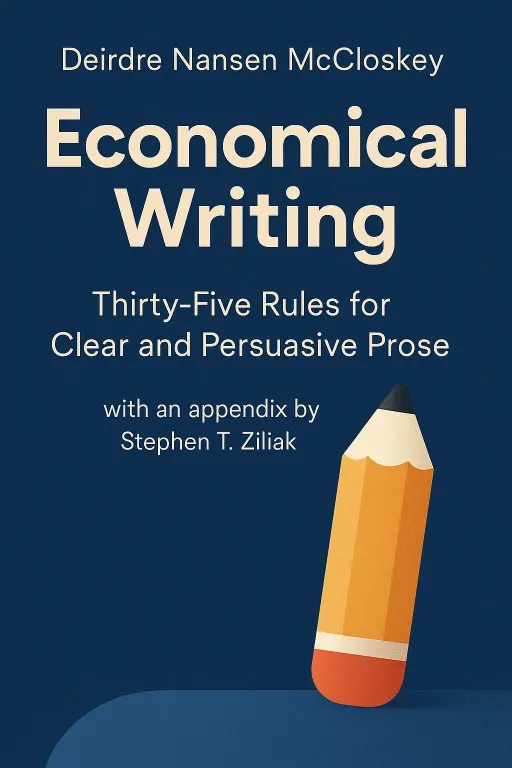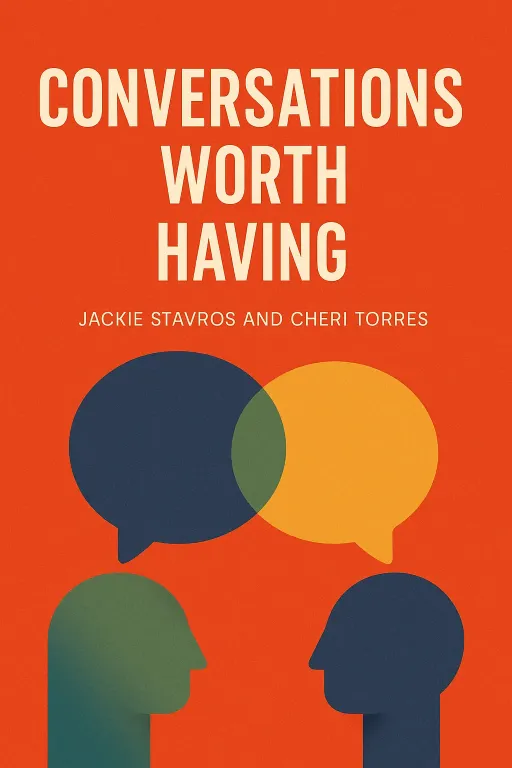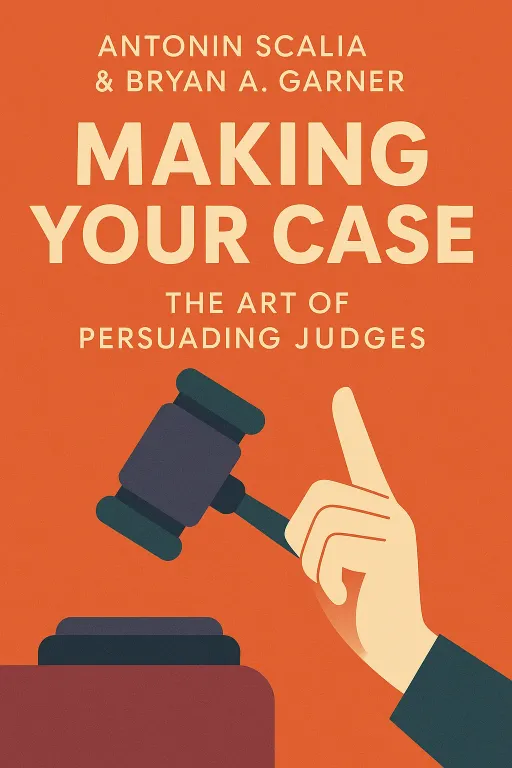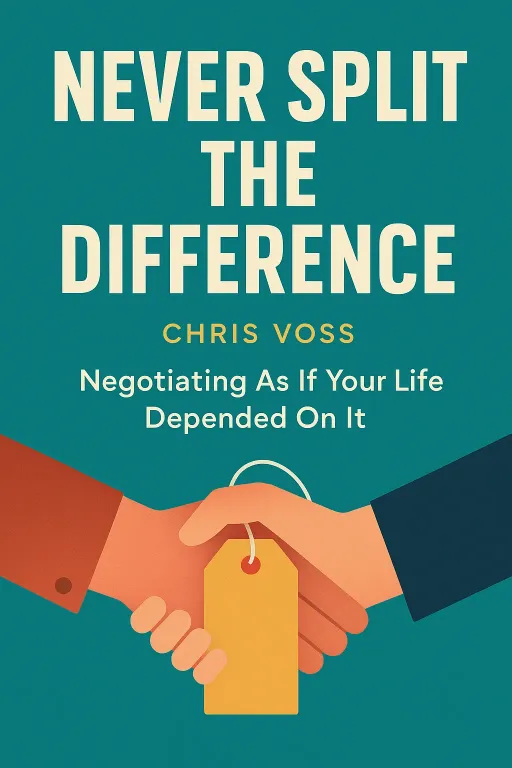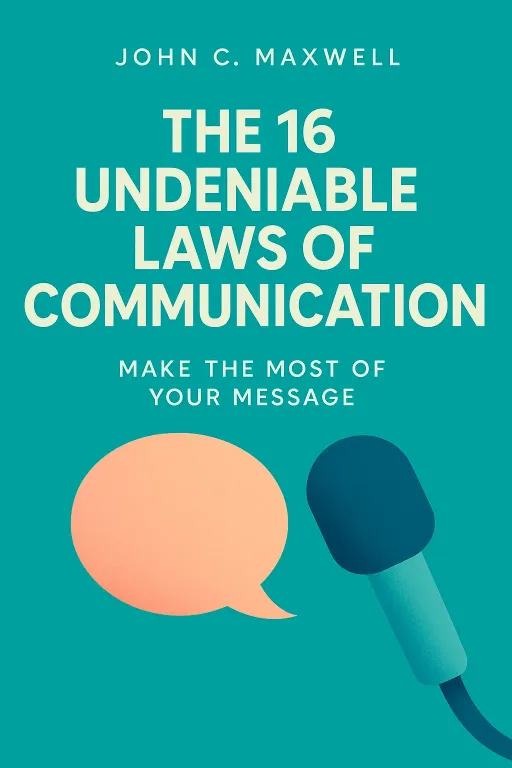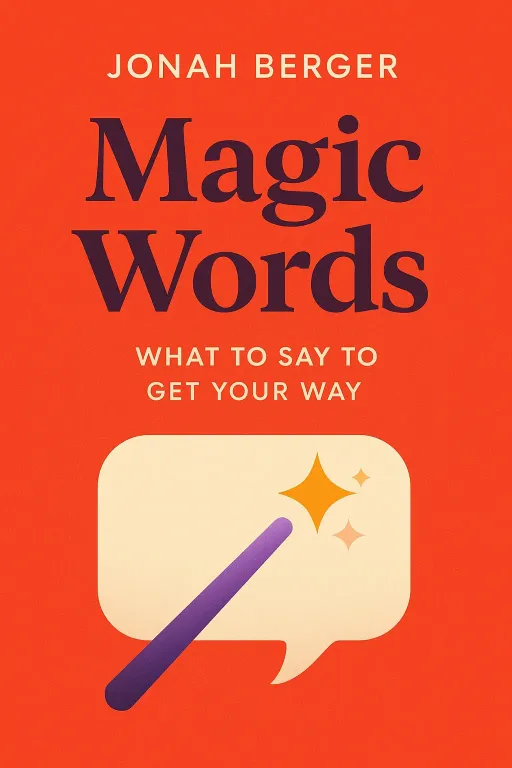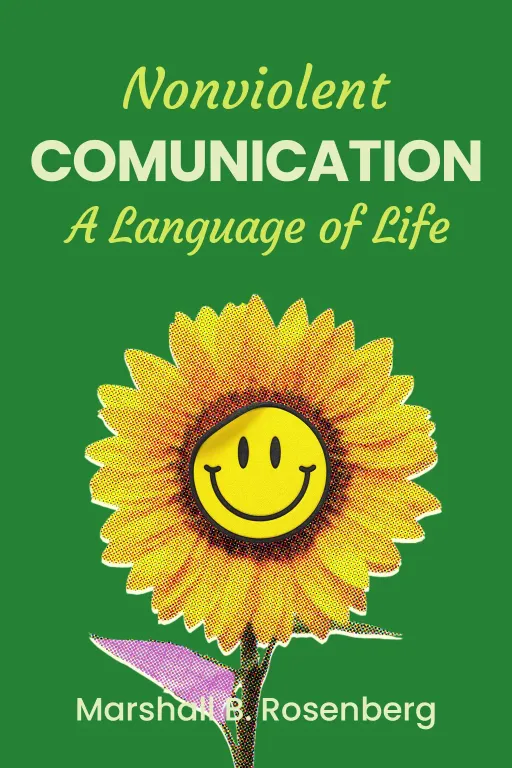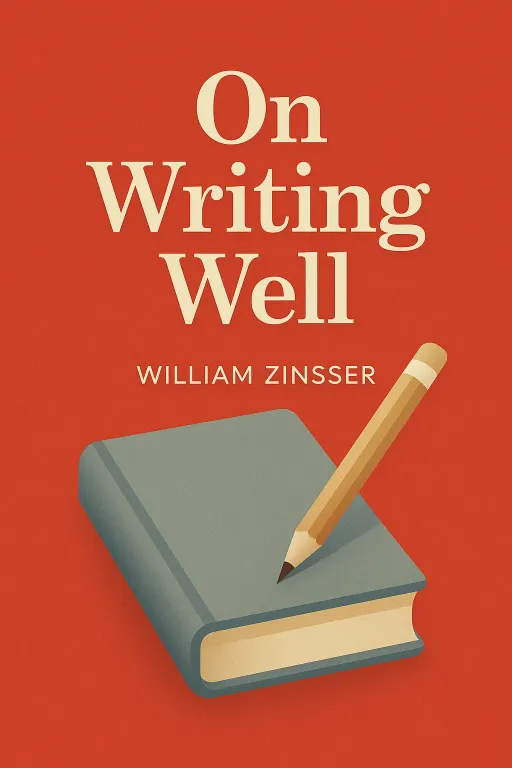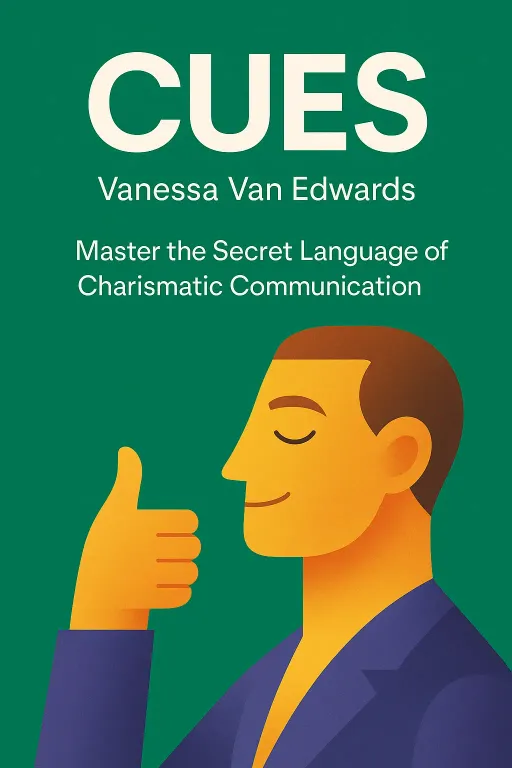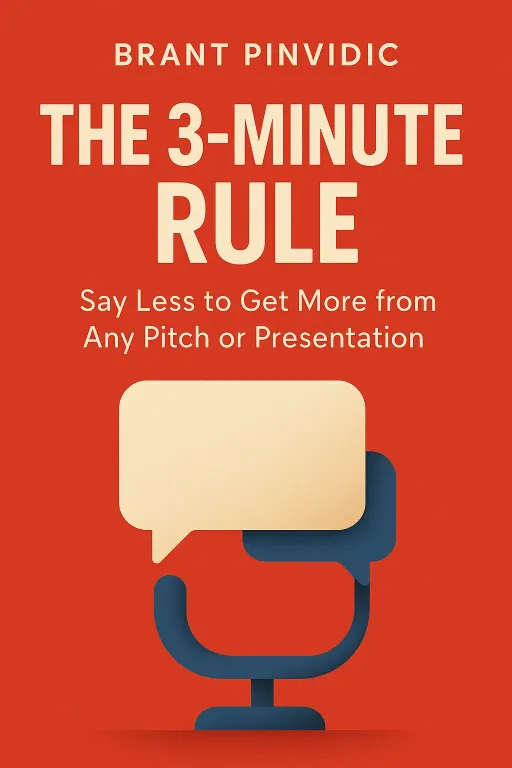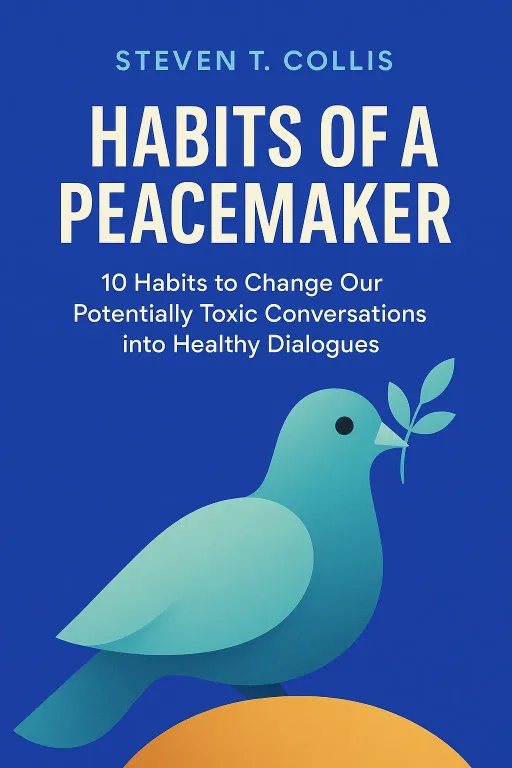
The Art of Disagreement
12 min10 Habits to Change Our Potentially Toxic Conversations into Healthy Dialogues
Golden Hook & Introduction
SECTION
Michelle: Alright Mark, pop quiz. Your uncle starts a political rant at a family barbecue. What's your go-to peacemaking move? Mark: Easy. I develop a sudden, intense interest in the structural integrity of the potato salad. I become one with the mayonnaise. Avoidance is a habit, right? Michelle: A very popular one! But our guest today, in book form, would argue there's a better, and braver, way. We're diving into Habits of a Peacemaker: 10 Habits to Change Our Potentially Toxic Conversations into Healthy Dialogues by Steven T. Collis. Mark: I like the title. It’s ambitious. Most of my conversations feel potentially toxic these days. Michelle: That’s the whole point. And what makes this book so compelling is the author himself. Steven T. Collis isn't some wellness guru writing from an ivory tower. He's a law professor at the University of Texas, a First Amendment expert, and the founding director of a center dedicated to civil discourse. Mark: Hold on, a First Amendment lawyer? So he deals with the absolute messiest, most high-stakes arguments for a living. We're talking about people suing each other over their most deeply held beliefs. Michelle: Exactly. He's been in the trenches of real-world conflict, which is why his advice feels so grounded and tested. The book has been really well-received for that reason; people find it incredibly practical because it comes from someone who has seen what works and what absolutely doesn't when the stakes are highest. Mark: Okay, I'm in. This isn't just theory; it's a field guide from the front lines of disagreement. So where does a First Amendment lawyer begin with peacemaking? I’m guessing it’s not “let’s all just get along.” Michelle: Not even close. In fact, his starting point is one of the hardest things to do when you feel attacked. It’s all about the inner game.
The Inner Game: The Counter-Intuitive Power of Humility and Positive Assumptions
SECTION
Michelle: The first big idea from Collis is that the battle is won or lost internally before you even say a word. It all starts with a habit he calls "Intellectual Humility." Mark: Ugh, humility. It sounds so… passive. In a heated argument, humility feels like bringing a flute to a sword fight. You're just going to get run over. Michelle: That’s the common misconception! We think of arguments as a performance where the most confident person wins. Collis reframes it. He argues that true intellectual humility isn't weakness; it's a superpower. It's the simple, yet profound, recognition that you might be wrong. That your perspective, no matter how well-researched or passionately felt, is incomplete. Mark: I can see how that would be true in a philosophy seminar, but what about a real argument? How do you practice that without just conceding every point? Michelle: It’s not about conceding; it’s about shifting your goal. The goal is no longer to win, but to learn. When you enter a conversation with the humility to accept you might not have all the facts, it completely changes your posture. You stop broadcasting and start receiving. You ask questions instead of making declarations. Mark: Okay, that makes some sense. You’re lowering the other person’s defenses because you’re not coming at them like a battering ram. But what if the other person is just… a jerk? What if they’re clearly not interested in a good-faith discussion? Michelle: This is where the second part of the inner game comes in, and it’s just as challenging. The habit is: "Assume the Best about People." Mark: Oh, come on. Assume the best? Have you been on the internet lately? That feels like a recipe for getting scammed or gaslit. Michelle: I know, it sounds incredibly naive. But Collis is a lawyer; he's not naive. He’s talking about your starting position. Think about it this way: a coworker sends you a very blunt, one-line email that could be read as dismissive or aggressive. You have a choice. Mark: Right. Choice A is to fire back an equally passive-aggressive email, screenshot it, and send it to our work friends to complain about them. Michelle: The standard, dopamine-fueled response, yes. That assumes the worst: they’re undermining you, they’re lazy, they don’t respect you. The peacemaker’s habit, assuming the best, means you choose a different story. Maybe they were running to a meeting. Maybe they were answering on their phone and being brief. Maybe they’re just a direct communicator. Mark: So instead of launching a counter-attack, you’d do what? Michelle: You’d ask a sincere, clarifying question. Something like, "Hey, just wanted to make sure I understand what you need here. Could you give me a bit more detail when you have a second?" You’ve given them the benefit of the doubt, de-escalated a potential conflict before it even began, and you’ll likely get a much more productive response. You’ve turned a potential fight into a problem-solving session. Mark: That’s a great example. It’s about not letting your own brain’s worst-case-scenario generator run the show. But the book has to have a line, right? There are people who are genuinely acting in bad faith. Trolls, manipulators… people who want a fight. Michelle: Absolutely. And this is critical. Collis is very clear that this isn't about being a doormat. He has a whole section on recognizing when civil discourse is not possible. If someone is consistently lying, insulting you, or refusing to engage with your points, you are not obligated to "make peace" with them. The goal is productive dialogue, not martyrdom. Assuming the best is your starting point, not a suicide pact. It’s a tool to sort the people who are capable of dialogue from those who are not. Mark: I like that. It’s a diagnostic tool. You offer the olive branch, and if they use it to try and poke you in the eye, you know what you’re dealing with and can disengage. Michelle: Precisely. You’ve maintained your own integrity and peace without getting dragged into a toxic spiral. That’s the inner game. It’s about managing yourself first. Mark: Okay, so you've got your mind right. You're humble, you're assuming the best until proven otherwise. What happens when you actually have to talk? This is where it gets messy. Michelle: It is. And once you've got that inner mindset dialed in, Collis introduces some habits for the 'Outer Game' that are, well, they're genuinely radical.
The Outer Game: Actively Seeking Disagreement and Resisting Closure
SECTION
Michelle: So, one of the most challenging habits in the entire book is "Hunt for the Best Argument Against You." Mark: Wait, what? Hunt for it? As in, go looking for trouble? That sounds completely insane. That’s like a boxer actively looking for the opponent who is most likely to knock him out. Why on earth would anyone do that? Michelle: Your boxing analogy is perfect, but you've got the motive slightly wrong. A great boxer does spar with stronger partners, not to get knocked out in the ring, but to get stronger in the gym. This is intellectual sparring. Collis argues that we get trapped in our own echo chambers, and our beliefs become brittle because they're never challenged. Actively seeking out the smartest, most compelling argument against your position is the ultimate way to stress-test your own beliefs. Mark: I guess I see the logic, but it feels deeply uncomfortable. My natural instinct is to find the dumbest argument against me, mock it, and feel superior. Michelle: And that’s what most of us do! It’s easy. It feels good. But it doesn’t lead to truth or connection. Hunting for the best argument does two things. First, it either strengthens your own position because you’ve successfully defended it against the best possible challenge, or second, and this is the humility part again, it shows you the flaws in your own thinking and allows you to grow. Mark: Can you give me a story of this in action? It feels so abstract. Michelle: I can give you a powerful one, and it actually comes from another one of Collis's books, a nonfiction work called The Immortals. It’s a perfect illustration of this principle in the most extreme circumstances. Mark: Okay, lay it on me. Michelle: He tells this incredible, true story of five US Army chaplains on a troop transport ship, the Dorchester, during World War II. The ship was torpedoed by a German U-boat in the North Atlantic and it was sinking fast. Panic everywhere. On that ship were five chaplains: a Catholic priest, a Jewish rabbi, and three Protestant ministers. Mark: Five men whose entire professional lives were based on deeply held, and very different, belief systems. That sounds like a recipe for a theological argument, not cooperation. Michelle: Under normal circumstances, maybe. But in that moment of ultimate crisis, they didn't argue about whose theology was correct. They didn't debate the finer points of the afterlife. They immediately started working together, calming the soldiers, handing out life jackets. When the life jackets ran out, the five chaplains took off their own and gave them to young soldiers. Mark: Wow. Michelle: They were last seen on the deck of the sinking ship, arms linked, praying together as it went down. In that moment, they found the best argument against their own differences. The best argument against "my religion is the only right one" was the overwhelming, immediate truth of their shared humanity and their common duty to the men around them. Mark: That’s… that’s staggering. So hunting for the best argument against you isn't about finding logical flaws to lose an argument. It's about searching for a bigger, more important truth that you and your "opponent" can both stand on. Michelle: You've nailed it. It’s about moving from "me versus you" to "us versus the problem." The chaplains’ problem wasn't their theological differences; it was a sinking ship. In our arguments, the problem isn't the other person; it's the misunderstanding, the policy we disagree on, the shared issue we need to solve. Mark: That reframes everything. But it leads to another problem. Most of these big, messy conversations don't have a neat ending like that, even a tragic one. They just… stop. And nothing is resolved. It’s so frustrating. Michelle: And that brings us to the final habit we'll talk about today, which might be the most Zen-like of them all: "Embrace the Discomfort of Non-Closure." Mark: Oh, I am terrible at this. I need to know who won. I need the final word. I need the email that says, "You were right all along." Michelle: We all crave that closure. It’s a neat, satisfying end to the story. But Collis points out that the most complex and important issues—in our families, in our society—don't have neat endings. They are ongoing conversations. If you demand total victory or a perfect resolution every time, you'll either be constantly frustrated or you'll start avoiding difficult topics altogether. Mark: So what does embracing non-closure look like? Just shrugging and walking away? Michelle: It’s more like planting a seed. It's about having a difficult conversation, making your points respectfully, listening to theirs, and being okay if the only outcome is that the other person has something new to think about. And so do you. You’ve moved the needle, even if it’s just by a millimeter. You’ve kept the relationship intact to have the conversation again another day. The peace isn't in the resolution; it's in the ability to continue the dialogue.
Synthesis & Takeaways
SECTION
Michelle: When you put all these pieces together—the inner game of humility and the outer game of hunting for disagreement and embracing non-closure—a really clear picture emerges. Mark: Yeah, it’s that peacemaking is not "nice." It’s not passive. It's incredibly active and requires a ton of courage. It’s the courage to be vulnerable enough to admit you might be wrong. Michelle: Exactly. The book's big, overarching idea is that peace isn't soft. It's an act of profound strength. It's the strength to manage your own ego, the strength to extend trust first, and the incredible strength to see disagreement not as a threat to be eliminated, but as a resource—a tool for building stronger ideas and deeper connections. Mark: It really changes how you think about the goal of a conversation. The point isn't to crush the other person with your brilliance. It's to build something better together, even if that "something" is just a tiny bit more understanding than you had when you started. Michelle: That’s the whole game. It’s about playing the long game for the relationship, not the short game for the ego-win. Mark: So, if there’s one thing people should take away and try this week, what is it? It feels like a lot to implement at once. Michelle: I think it’s about starting small. Don’t try to solve a 30-year family feud tomorrow. The one practical thing to try is this: the next time you’re in a discussion and you feel that hot, defensive anger rising in your chest, just pause. Instead of firing back with a counter-point, force yourself to ask one sincere, open-ended question. Something as simple as, "Help me understand why you feel so strongly about that." Mark: That’s a great, concrete action. You’re not agreeing with them, but you are validating their right to feel that way. It’s a circuit-breaker for the whole toxic cycle. It forces you to be a peacemaker, even for just one sentence. Michelle: It does. And it might just change the entire direction of the conversation. So, a final question for our listeners to reflect on: What's the one conversation you've been avoiding? And what's one habit from today that might change how you approach it? Let us know your thoughts; we love hearing how these ideas land with you. Mark: It’s a powerful framework. A reminder that in a world that profits from our division, choosing to be a peacemaker is a quiet, radical act. Michelle: This is Aibrary, signing off.
